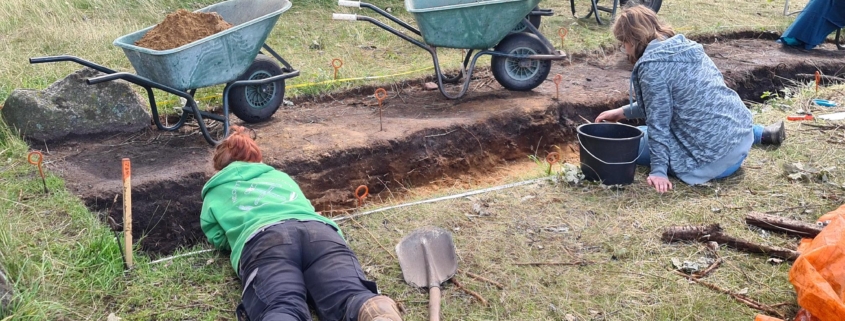Code of conduct
Gedragscode opgravingen in Nederland door onderwijsinstellingen
In de Erfgoedwet is certificering een verplichting voor alle vormen van opgraven. Onder opgraven/opgravingen wordt verstaan: archeologisch onderzoek in de vorm van boringen, proefsleuven en opgravingen (inclusief de rapportage hierover).
Een uitzondering op de certificering wordt gemaakt voor onderwijsinstellingen in de archeologie (universiteiten en HBO-instellingen). Om te voorkomen dat daarbij belangen van commerciële bedrijven worden doorkruist, committeren de archeologische onderwijsinstellingen zich aan de volgende gedragscode:
1. Onderwijsinstellingen houden zich bij opgravingen aan de Kwaliteitsnorm Nederlandse Archeologie.
2. Onderwijsinstellingen offreren niet op projecten die in de markt zijn gezet.
3. Opgravingen door onderwijsinstellingen zijn primair gericht op competentieontwikkeling van studenten.
4. De keuze voor een opgravingslocatie van een onderwijsinstelling wordt niet gestuurd door een Malta-plichtige verstorende activiteit.
5. In alle gevallen waarin onderwijsinstellingen zouden willen deelnemen aan een commercieel aanbesteed project, wordt het voortouw genomen door een gecertificeerd bedrijf, zowel in het offertetraject als in de uitvoering en uitwerking.
Code of conduct for excavations in the Netherlands by educational institutions
The Heritage Act makes certification an obligation for all forms of excavation. Excavation means: archaeological research in the form of core sampling, trial trenches and excavations (including the reporting thereof).
An exception to certification is made for educational institutions in archaeology (universities and HBO-institutes). To avoid interfering with the interests of commercial businesses, the archaeological educational institutions commit themselves to the following code of conduct:
1. Educational institutions will adhere to the Dutch Archaeology Quality Standard when excavating.
2. Educational institutions will not bid on projects which have been put on the market.
3. Excavations by educational institutions are primarily aimed at competence development of students.
4. An educational institution’s choice of an excavation site is not driven by a Malta-listed disturbing activity.
5. In all cases where educational institutions would like to participate in a commercially tendered project, the lead is taken by a certified company, both in the bidding process and in the execution and elaboration.

